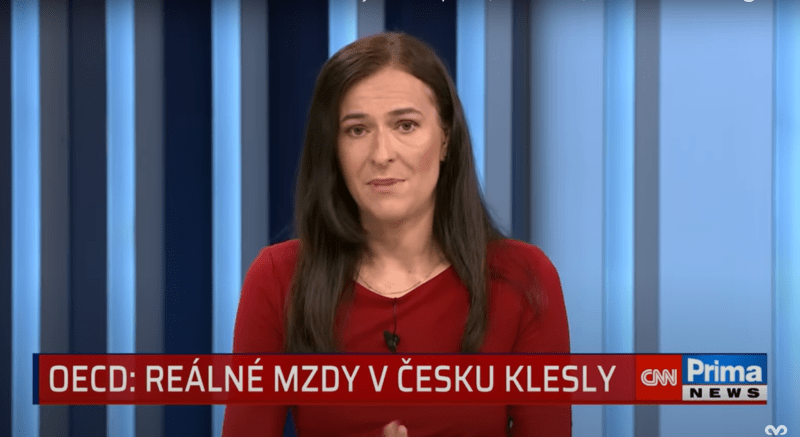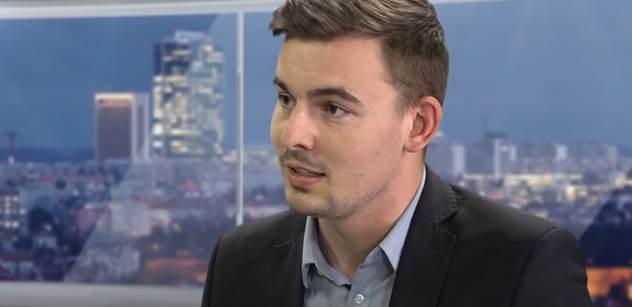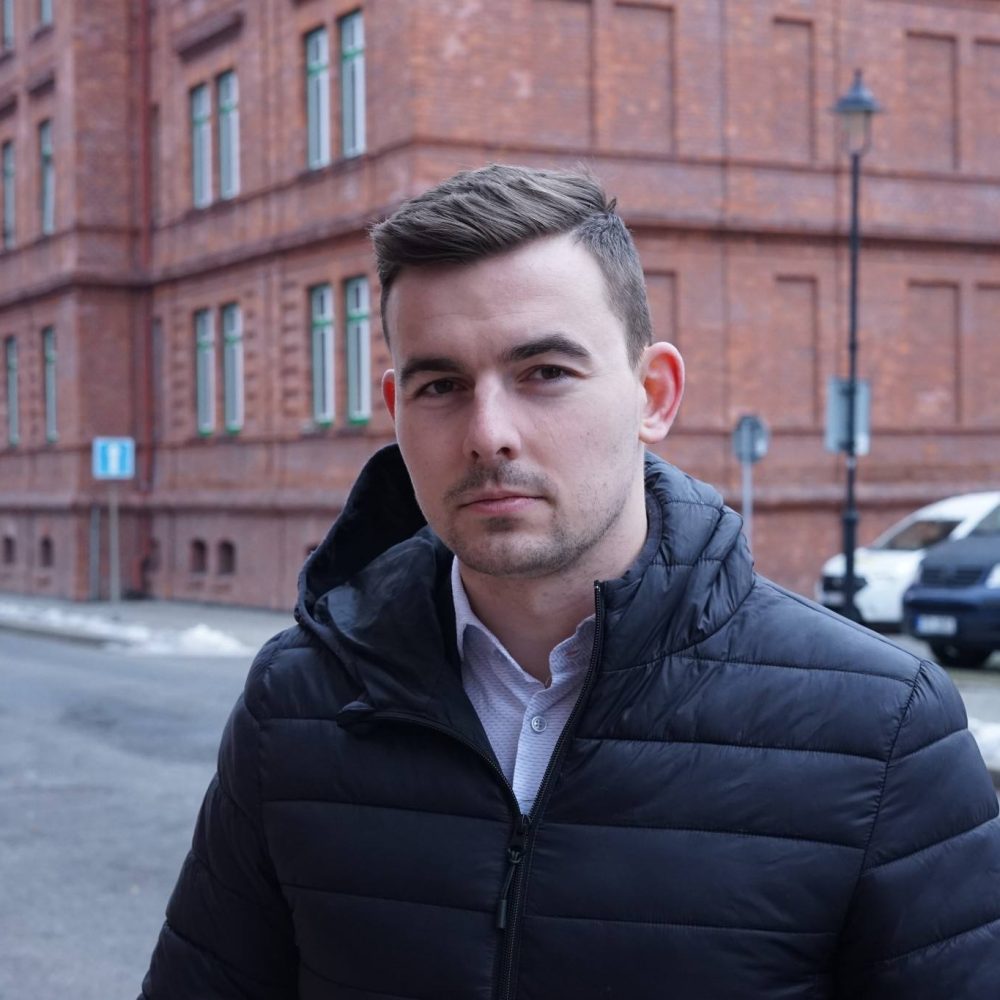Mr. Chairman, dear Nigel, Ladies and Gentlemen,
I am very pleased and honoured to have been invited to this Conference, to speak here along with your distinguished speakers and to address an audience with whom I share fundamental political ideas of freedom and national independence.
I come from the Czech Republic representing a small – recently established – political party called the Free Citizens. My party is very similar to yours, not only in its attitudes towards the European Union, but also regarding taxation, energy, and other issues.
I suppose that for most of you the Czech Republic is associated with Vaclav Klaus, our exceptional President.
I am proud that I come from the Czech Republic, a country whose President Vaclav Klaus audaciously unveils the truth of European integration, who understands its substance and who is able to question false political correctness related to it in a language clear of the modern euro-speak.
Last year President Vaclav Klaus stood against the Lisbon Treaty as the last European statesman, and we were all sad when he eventually signed it. But we don’t blame him. We understood that he couldn’t hold against both chambers of the Czech Parliament and the Constitutional Court. He definitely did his best.
In order to contribute to the efforts represented by President Klaus, the UKIP and other forces that strive for free competition and national sovereignty, we have established the Free Citizens Party. We promote the ideas of freedom and national independence alongside you.
We are happy the we are not alone, the we can look up to UKIP, a role model party for us which has taught us that standing firmly for the ideas of independence and freedom is not only a good thing, it is also viable.
You have succeeded in the European Parliament election and your success and increasing popularity prove that one day, through persistence and political steadiness, we can also succeed.
I am going to share with you three remarks: First remark will be about the philosophical fundamentals of the EU. Second remark will be about the prospects of the European Union in comparison with the former Soviet Union. Third remark will be about lessons we can learn from the debate of the possible Turkey’s membership in the EU.
EU=mistake
Let me start with a basic observation regarding the very substance of the European Union.
Adam Ferguson, 18th-century Scottish philosopher, as well as later the Austrian economist Friedrich August von Hayek discovered a very important distinction between human action and human design.
Human action is responsible for many benign and time-proven institutions in human society. They include Family, Market, Sunday or the Nation-State. These institutions are the product of human action. They have evolved over centuries, with no concrete human creator who designed them.
On the other hand, there are institutions that are the result of human design. These social constructions are often harmful. They are based on the assumption that some big-headed individuals – social engineers, as Hayek called them – know better than millions of independent people what is better to do. The well-known examples of human design in Hayek’s time were central planning of the economy or the Soviet Union. A modern example of a bad institution based on human design is the European Union.
The EU is a mistake.
The EU is based on the assumption that the central Commission in Brussels knows better than millions of individuals what is good for them. This could theoretically be true, if the Commission were endowed with divine intelligence. I am afraid it is not the case.
In normal circumstances, humankind is protected against such conceit by separation of powers and by diversity of the centres of political decision-making. But the EU is based on centralization and on oppression of inter-jurisdictional competition. Therefore the possible mistakes of the EU have more serious consequences than those of a national government, which is subject to the separation of powers and competitive environment.
If my government – for instance – makes a mistake – say in its fiscal or economic or immigration policy – it can have bad consequences for me and my fellow citizens. But regarding other nations, they are not only safe from our mistakes, they can even learn from them. However, if the EU makes a mistake in its policy, then not only it falls upon half a billion people, but it is also very difficult to recognize. Without being able to compare different policies, we can hardly recognize the drawbacks of the EU regulation.
If a baker at the corner makes bad bread, we can go to the shop of his competitor. If the EU makes bad legislation there is no escape. The EU is based on the increasing monopolization of power, and this lack of competition is increasing the number of bad decisions.
Instead of monopolization, we need competition and freedom to choose. We need tax competition, monetary competition, as well as a variety of energy and immigration policies. We need independent nations in Europe instead of a monopolistic super-state.
We have learned that the EU is not reformable. It is causing more and more damage. Therefore the only way to reintroduce accountability, healthy competition and freedom is a unilateral secession from the EU.
Gorbachev
My second observation is about the future prospects of the EU.
Big empires have always eventually destroyed themselves by huge bureaucracy and inability to enforce their own rules.
The EU still exists, but more and more individuals and member states don’t comply with its rules. No one is keeping the budget deficit in line with the Stability and Growth Pact for instance. The Euro-zone member states are pouring money to Greece despite the explicit ban of financial assistance to member states embedded in the treaties.
These are clear symptoms that the EU is approaching its own end. One day the so-called president of the European Union Mr. Rompuy will end up like the last president of the Soviet Union. On one beautiful day, Mr. Gorbachev found that he was the president of a virtual entity that all members had left. He simply stopped receiving his salary.
I look forward to the day that Mr. Rompuy finds he is not able to get any more money from us.
Turkey
My third and last remark is on the question of Turkey in the EU.
Sometimes people ask us whether we are for or against the membership of Turkey in the EU.
I remember that British euro-skeptics had been in favour of the EU enlargement, believing that the inclusion of Central European countries would prevent the deepening of the political integration. They were wrong. It is too easy for Germany – and the EU as a whole – to bribe politicians from peripheral countries. Similarly, some euro-skeptics today believe that being in favour of Turkish membership in the EU can help destroy the EU.
A free-marketeer in me says that it would be nice to be together with Turkey in a free trade area. But the EU is far from being a mere free trade area. The EU is a monster which is regulating every little aspect of life, from light bulbs to toilet bowls. Everybody knows what kind of toilets they have in Turkey. In Czech we call them Turkish toilets. If I am not mistaken you call them French toilets. Who knows? Maybe one day we will find Turkish-French-toilets enacted as the only legal standard throughout Europe. You might reply that this remark regarding Turkish toilets was a cheap anti-Muslim stance.
I assure you that I am not anti-Muslim. And I have nothing against French Toilets – as long as they are in France or in Turkey.
In the same way I am not anti-German. I have nothing against subsidized photovoltaic panels as long as they are subsidized by German consumers within Germany.
So regarding Turkey’s membership, I rather say that for us, who are in favour of our own independence from the EU, this question is irrelevant: Well if they want Turkey in the EU, let them have it. We don’t care. But go without us.
The EU should only be sincere then: If the EU accepts Turkey it should change its name a little bit. Then, instead of the European Union, its name should be Eurasia, in order to put the name in line with George Orwell’s 1984.
Exit
Although we may observe many symptoms of an impending collapse of the EU, it may endure longer than we would wish, or the collapse might not be peaceful.
For both reasons it is not only legitimate but also responsible and reasonable to propose a unilateral secession from the EU.
You can be proud that you have built a strong political force that defends the interests of those who know that continued membership in the EU is harmful. The British citizens have their UKIP, and in the Czech Republic we have established the Free Citizens Party.
What we want: We want to live in a free and sovereign country which is responsible for its own laws. We are devoted to free markets, tolerance and freedom.
We have a positive vision of a free, prosperous and peaceful country which has no ambition to dictate its policies to other nations, which doesn’t force its taxpayers to pay bills for other nations.
Notice that today, what our parliaments do is not called voting any longer – it is called transposing and implementing. Once outside the EU, politics and democracy will regain their proper sense. Peoples’ wishes will be reflected in decision-making again. The Parliaments will be discussing bills stemming from the national needs instead of transposing directives from Brussels.
We are no isolationists. We think we should join EFTA after leaving the EU and thus gain access not only to EFTA markets but also to more than 50 countries and territories with which EFTA has signed free trade agreements. We will have secured free trade with the EU under the European Economic Area agreement until we negotiate a better deal, such as Switzerland has.
Once our nations are independent again, the taxpayers will save billions not having to pay excessive prices for energy due to EU legislation. They will save more billions because they won’t have to pay huge contributions to the EU budget and to “co-finance” bizarre EU projects.
Conclusion
Now we must work hard to convince a democratic majority of our political goals, the national independence and individual freedom.
I am looking forward to the day I won’t share a Union with you.
Thank you for your attention.
Petr Mach, Free Citizens Party leader, Czech Republic, UKIP Annual Conference, Torquay 2010



